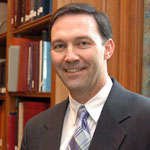Commentary on Psalm 15
The subject of Psalm 15 is the question, what is expected of a person who comes into the presence of God?
Many scholars believe the psalm was inspired by and patterned after liturgies performed at the gates of the temple wherein a gatekeeper stated qualifications for entry. According to this theory, such ceremonies expressed expectations of ritual purity or requirements for sacrificial offerings (Deuteronomy 23:2-9; 2 Chronicles 23:19).1 Psalm 15 is closer in character, however, to Isaiah 33:13-16 which gives instruction in the type of character God demands (see also Micah 6:6-8).2 Psalm 24:3-6 is another example of such instruction.
The psalm opens with two questions about what God expects of the worshipper. They both present the idea of being in God’s presence in terms of living temporarily (gur, “sojourn;” “dwell”) and abiding or dwelling (shakan; verse 1). These words are metaphors for spending time in the place of worship and do not refer to living there in a literal sense (compare Psalm 23:6; 27:4). Nevertheless, the image of dwelling in the holy place may be inspired by the practice of priests (1 Samuel 3) and Levites (Deuteronomy 18:6-8; 1 Chronicles 16:37-42) who made their home at the central sanctuary while in service there.
The specific points of conduct in verses 2-5 describe a right orientation to God in terms of right actions towards the neighbor. The first two statements in verse 2 (“walk blamelessly,” “do what is right”) describe exterior acts of right action. The word “blameless” translates a Hebrew term that is sometimes rendered “with integrity.” The same term describes the character of Job (Job 1:1; see also Proverbs 2:7). “Blameless” refers to a type of life that is consistent and complete, in every way in line with God’s intentions. The second statement, “does what is right” is similar to and qualifies the first. The idea is that God established the world with righteousness, and the righteous person participates in God’s maintenance of the world by means of right actions (Psalm 97:2).
The final description in verse 2 (“speak the truth from their heart”), however, makes clear that the right actions the psalmist has in mind do not amount to rote adherence to a legal standard. Rather, they grow out of the meditations of the heart. In other words, the person Psalm 15 describes is like the person portrayed in the first psalm, one whose “delight is in the law of the lord” and who “meditates” on the law, day and night (Psalm 1:2).
The behaviors of the righteous listed in Psalm 15 are illustrative, but they nevertheless give insight into the orientation of the psalm towards right action. The acts that are named all have in common a concern for the well-being of the community on various levels. The righteous person does not slander or participate in such destructive activity toward those close to him or her (verse 3).
On a wider scale, the righteous person despises the wicked, but “honors” those who “fear the lord” (verse 4a). The term translated “wicked” is not the term the Psalms typically use for those who oppose God. Rather, it is a word that might be woodenly translated “one who is rejected or despised” (nim?as). The word highlights the fact that “the wicked” perform actions that should be rejected. In Psalm 15:4 the term appears in contrast with “those who fear the lord.” The righteous person stands outside the influence of the wicked, those who act in ways that bring divine rejection, but stands with and under the influence of those who submit to God’s rule (see Psalm 1:1).
The final description of right action in Psalm 15 includes the word for monetary currency (verse 5; kesep; “silver”). Both parts of the verse focus on the proper use of money. The righteous “do not lend money at interest” and “do not take a bribe against the innocent.” The world that gave rise to this sketch of the righteous was agrarian, and money was not a part of daily human interaction. Money was rare, as was the necessity of borrowing money.
Those who sought to borrow money were typically in desperate circumstances and could be easily abused. For that reason, those who loaned money were to think of themselves as giving assistance to the needy (Exodus 22:24; Leviticus 25:36; Deuteronomy 23:20). Thus, those who loaned at interest were predators. They took advantage of the misfortune of those seeking a loan to enrich themselves, sometimes sending the unfortunate borrower into slavery to pay the debt.
Seen in this light, this first description of the righteous’ economic practice is similar in severity to the second: they “do not take a bribe against the innocent.” This final description is general, and the implications of taking a bribe are not spelled out. Deuteronomy 27:25 uses similar language, however, to link taking a bribe with “shedding innocent blood.” This passage may have in mind a judge who takes money in exchange for a guilty verdict on one who killed another by accident, thus permitting a kinsman (an “avenger of blood”) to seek revenge (see Deuteronomy 19:10).3
Whatever the description in Psalm 15:5 has in mind specifically, it seems from these other references that it is likely a matter of life and death. The one who takes a bribe has no concern for community health, but only for economic advancement. The righteous are not so. They are in accord with the righteousness of God that ensures the health and well-being of the whole society. They are like the earth that God made secure in creation (Psalm 93:1). Thus, as a result of their right actions toward others, Psalm 15 declares, they “shall never be moved” (verse 5).
Notes:
- See Erhard S. Gerstenberger, Psalms, Part I with an Introduction to Cutlic Poetry (Forms of Old Testament Literature; Grand Rapids, Mich.: Wm. B. Eerdmans, 1988), 88.
- James L. Mays, Psalms (Interpretation: A Bible Commentary for Teaching and Preaching; Louisville: Westminster John Knox Press, 1994), 85.
- Richard D. Nelson, Deuteronomy: A Commentary (Old Testament Library; Louisville: Westminster John Knox Press, 2002), 321.


July 21, 2019